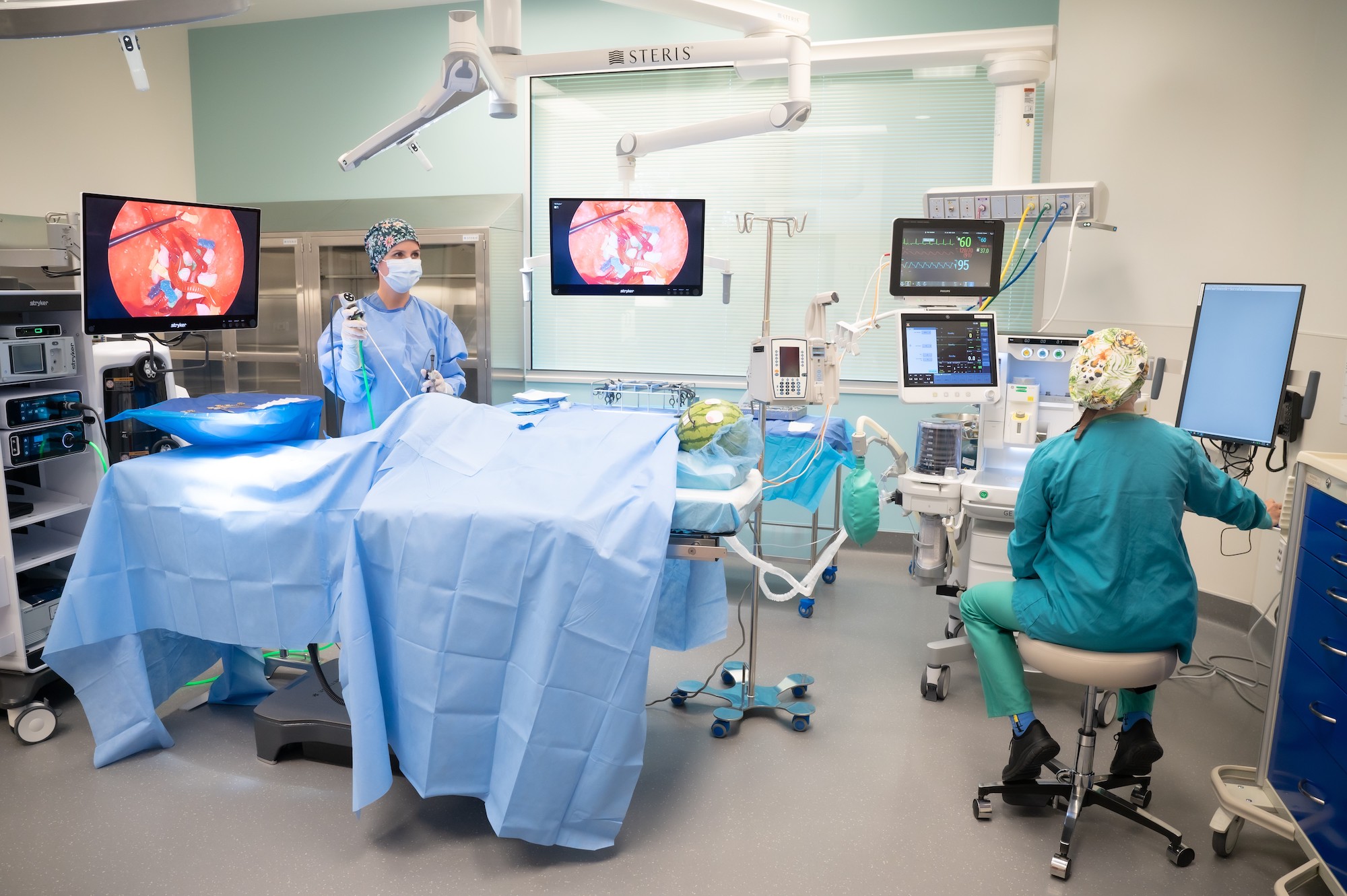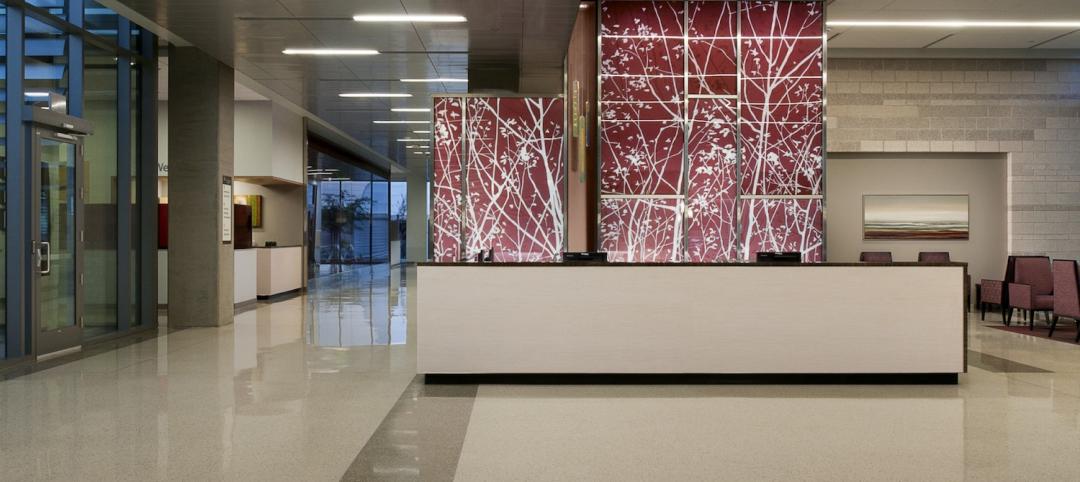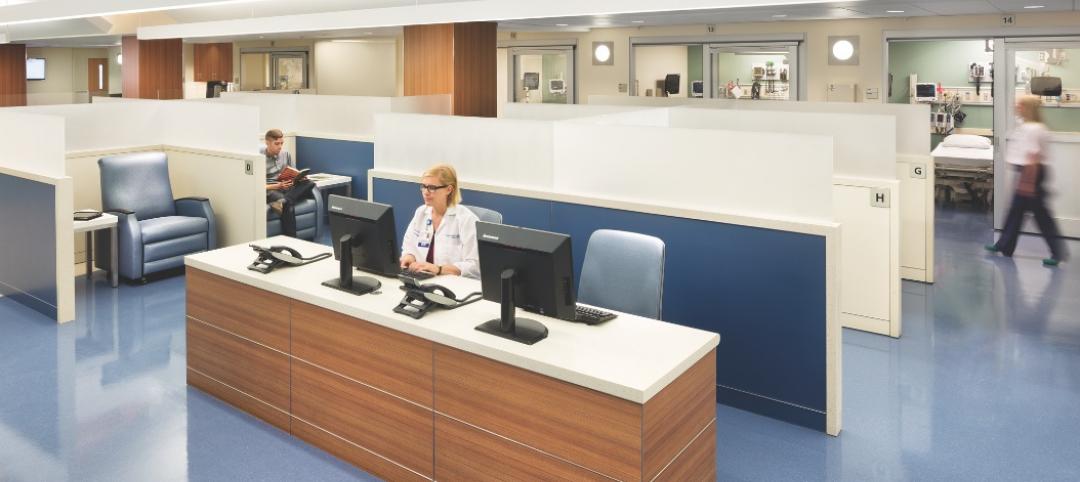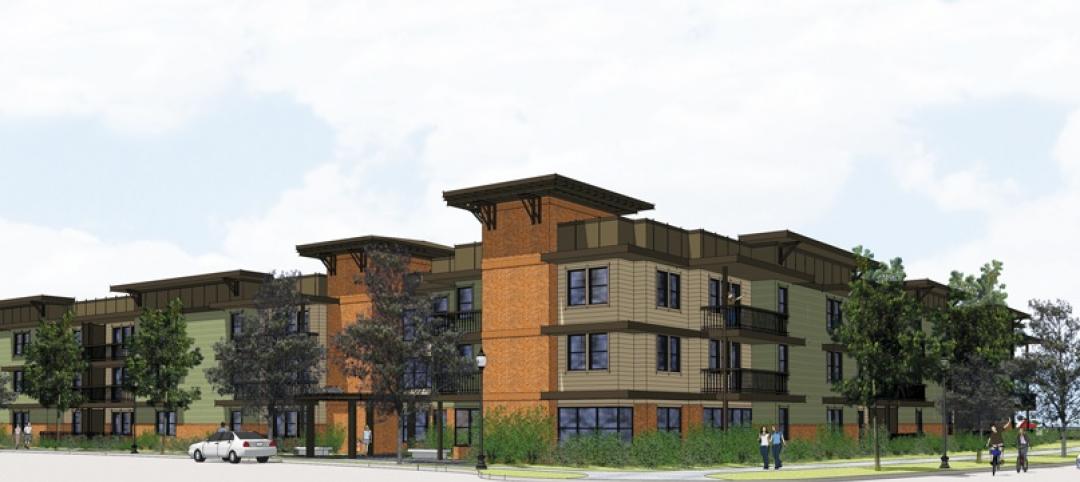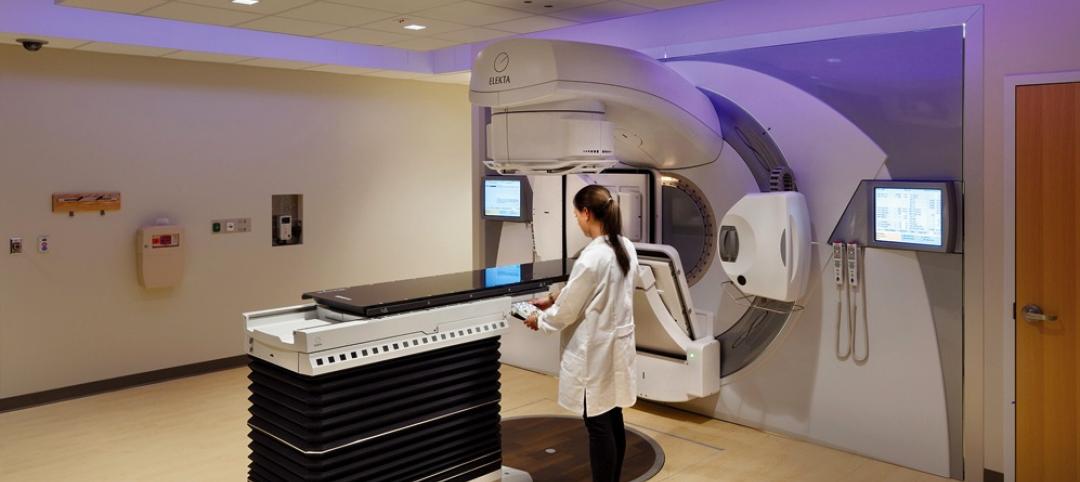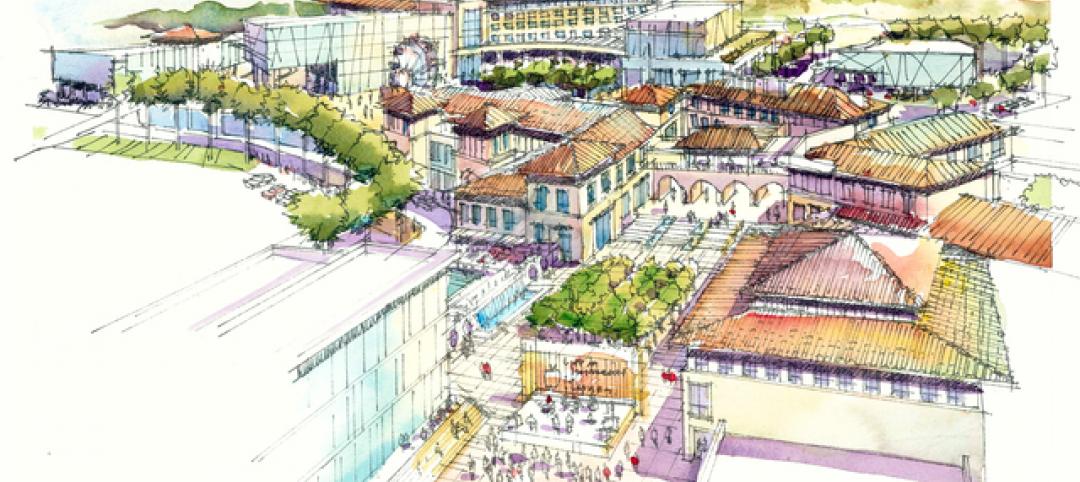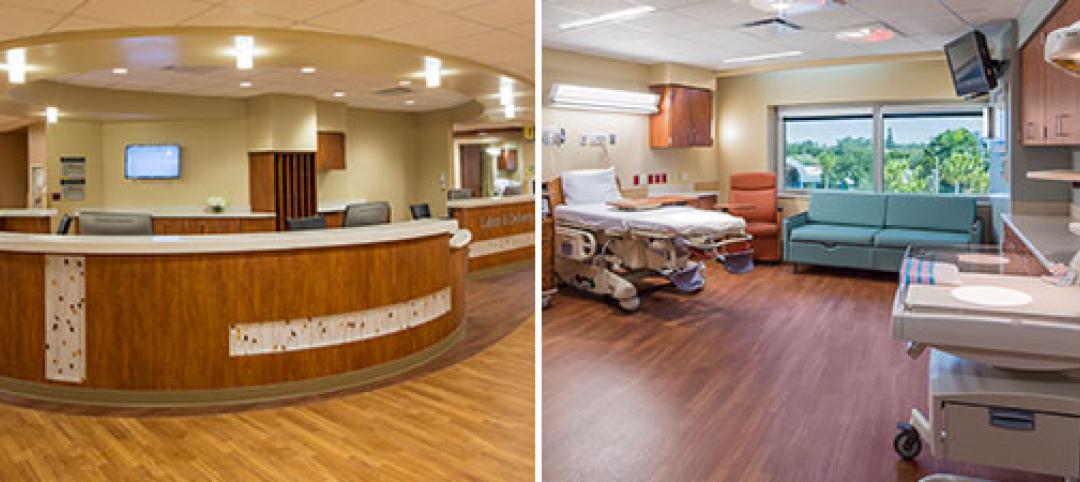Sutter Health’s Samaritan Court Ambulatory Care and Surgery Center (Samaritan Court), a three-story, 69,000 sf medical office building, was recently completed three months early and $3 million under budget, according to general contractor Skanska.
The project “marks the first time a general contractor has collaborated seamlessly with all trade partners (mechanical, electrical, plumbing, framing, and drywall) on layout strategy and responsibilities simultaneously,” Skanska says.
The accomplishment was aided by Dusty Robotics, a robot tool that its manufacturer says, “allows project teams to dramatically reduce schedule time and rework costs through accurate, full-scale floor layout.” Skanska worked with trade partners specializing in mechanical, electrical, plumbing, framing and drywall, to develop a combined layout plan in a “first-of-its-kind collaboration and implementation of Dusty Robotics.”
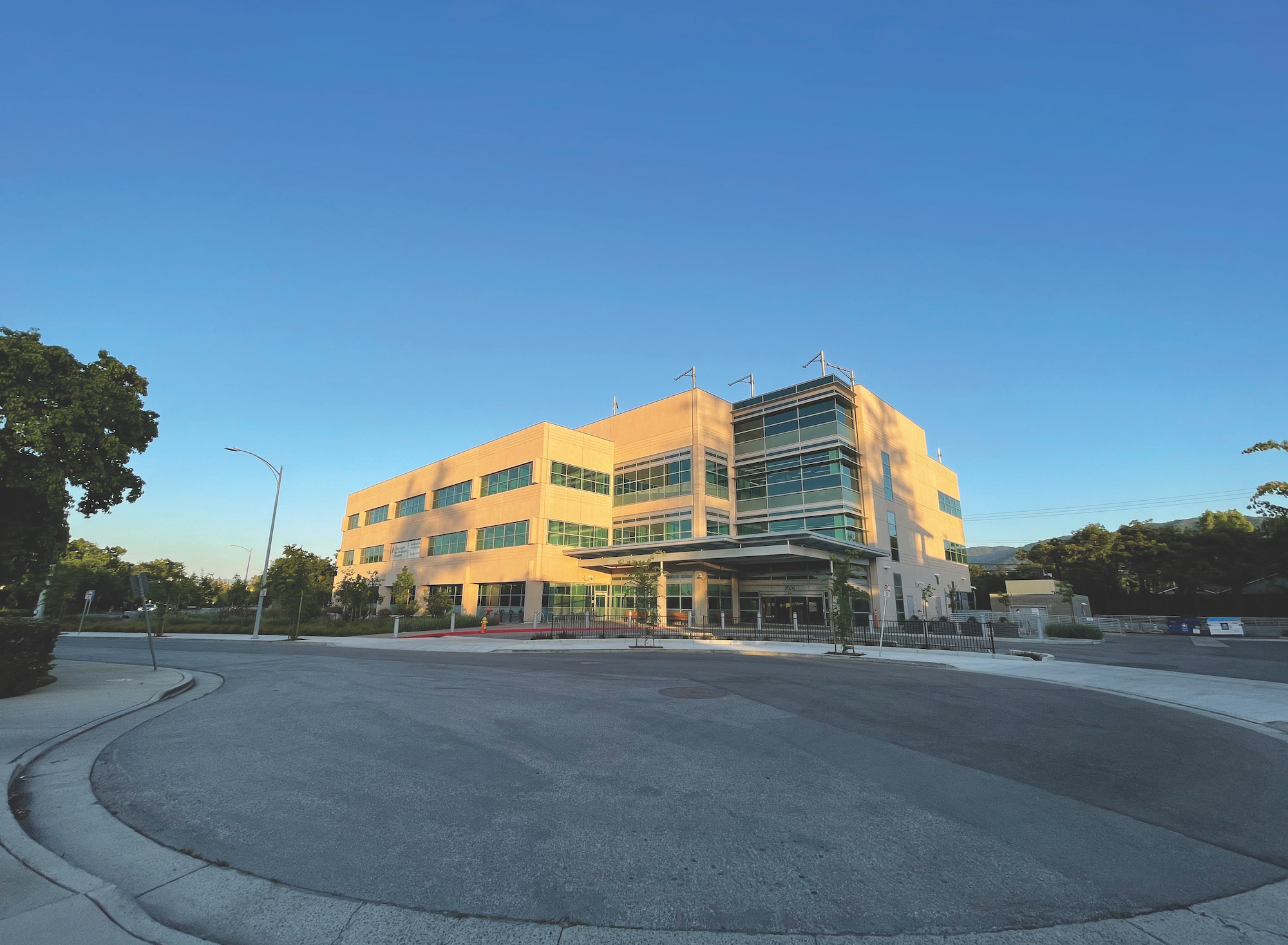
The project team also used a virtual punch list and Takt Planning, starting punch list activities during the design and preconstruction phases rather than in the closeout phase. The team focused on where improvements could be made to cut rework in half in comparison to projects of similar size and complexity.
The virtual punch list allowed each stakeholder to review final conditions—furniture, casework and equipment placement, ADA clearances, device and outlet alignment, utility connections, and item placements that would require unique finish details—in the building model. This allowed the team to achieve its goal of cutting rework by 50% on the project.
The design team strove for a warm, timeless, easy-to-maintain, and inviting space by incorporating warm woods, recessed modern lighting, natural stone, and visually stimulating wayfinding graphics. Wayfinding throughout the building used imagery of local flora and fauna elemental themes assigned to each floor, such as water, pebbles, and trees. Natural element-themed graphics were assigned to each medical practice to create an intuitive orientation in the building.
Located near the border of San Jose and Los Gatos, Calif., the building aims for patient-centered care. Design highlights include:
- Single entry/exit for patients, promoting clear wayfinding
- Centralized reception areas for upper floors at patient entry points
- Centralized waiting spaces on upper floors to allow a variety of clinical services to share seating and maximize efficiency for staff movement
- Localized departments to achieve the greatest operational efficiency for the best patient care with ease of access to core modalities including Diagnostic Imaging and Laboratory Services
- Departmental adjacencies to share point-of-care rooms and support spaces between clinic modules and services
- Locating of the surgery center on the first floor for ease of patient access and discharge
- Orientation of patient care and recovery rooms toward pleasant views of the natural environment to encourage patient recovery
On the project team:
Owner and/or developer: Sutter Health
Design architect: Boulder Associates
Architect of record: Boulder Associates
MEP engineer: Southland Industries (mechanical, plumbing); Prime Electric (electric);
Structural engineer: Miyamoto
General contractor/construction manager: Skanska


Related Stories
| Oct 30, 2014
CannonDesign releases guide for specifying flooring in healthcare settings
The new report, "Flooring Applications in Healthcare Settings," compares and contrasts different flooring types in the context of parameters such as health and safety impact, design and operational issues, environmental considerations, economics, and product options.
| Oct 30, 2014
Perkins Eastman and Lee, Burkhart, Liu to merge practices
The merger will significantly build upon the established practices—particularly healthcare—of both firms and diversify their combined expertise, particularly on the West Coast.
| Oct 21, 2014
Passive House concept gains momentum in apartment design
Passive House, an ultra-efficient building standard that originated in Germany, has been used for single-family homes since its inception in 1990. Only recently has the concept made its way into the U.S. commercial buildings market.
| Oct 21, 2014
Hartford Hospital plans $150 million expansion for Bone and Joint Institute
The bright-white structures will feature a curvilinear form, mimicking bones and ligament.
| Oct 16, 2014
Perkins+Will white paper examines alternatives to flame retardant building materials
The white paper includes a list of 193 flame retardants, including 29 discovered in building and household products, 50 found in the indoor environment, and 33 in human blood, milk, and tissues.
| Oct 15, 2014
Harvard launches ‘design-centric’ center for green buildings and cities
The impetus behind Harvard's Center for Green Buildings and Cities is what the design school’s dean, Mohsen Mostafavi, describes as a “rapidly urbanizing global economy,” in which cities are building new structures “on a massive scale.”
| Oct 13, 2014
Debunking the 5 myths of health data and sustainable design
The path to more extensive use of health data in green building is blocked by certain myths that have to be debunked before such data can be successfully incorporated into the project delivery process.
| Oct 12, 2014
AIA 2030 commitment: Five years on, are we any closer to net-zero?
This year marks the fifth anniversary of the American Institute of Architects’ effort to have architecture firms voluntarily pledge net-zero energy design for all their buildings by 2030.
| Oct 8, 2014
Massive ‘healthcare village’ in Nevada touted as world’s largest healthcare project
The $1.2 billion Union Village project is expected to create 12,000 permanent jobs when completed by 2024.
| Oct 3, 2014
Designing for women's health: Helping patients survive and thrive
In their quest for total wellness, women today are more savvy healthcare consumers than ever before. They expect personalized, top-notch clinical care with seamless coordination at a reasonable cost, and in a convenient location. Is that too much to ask?


